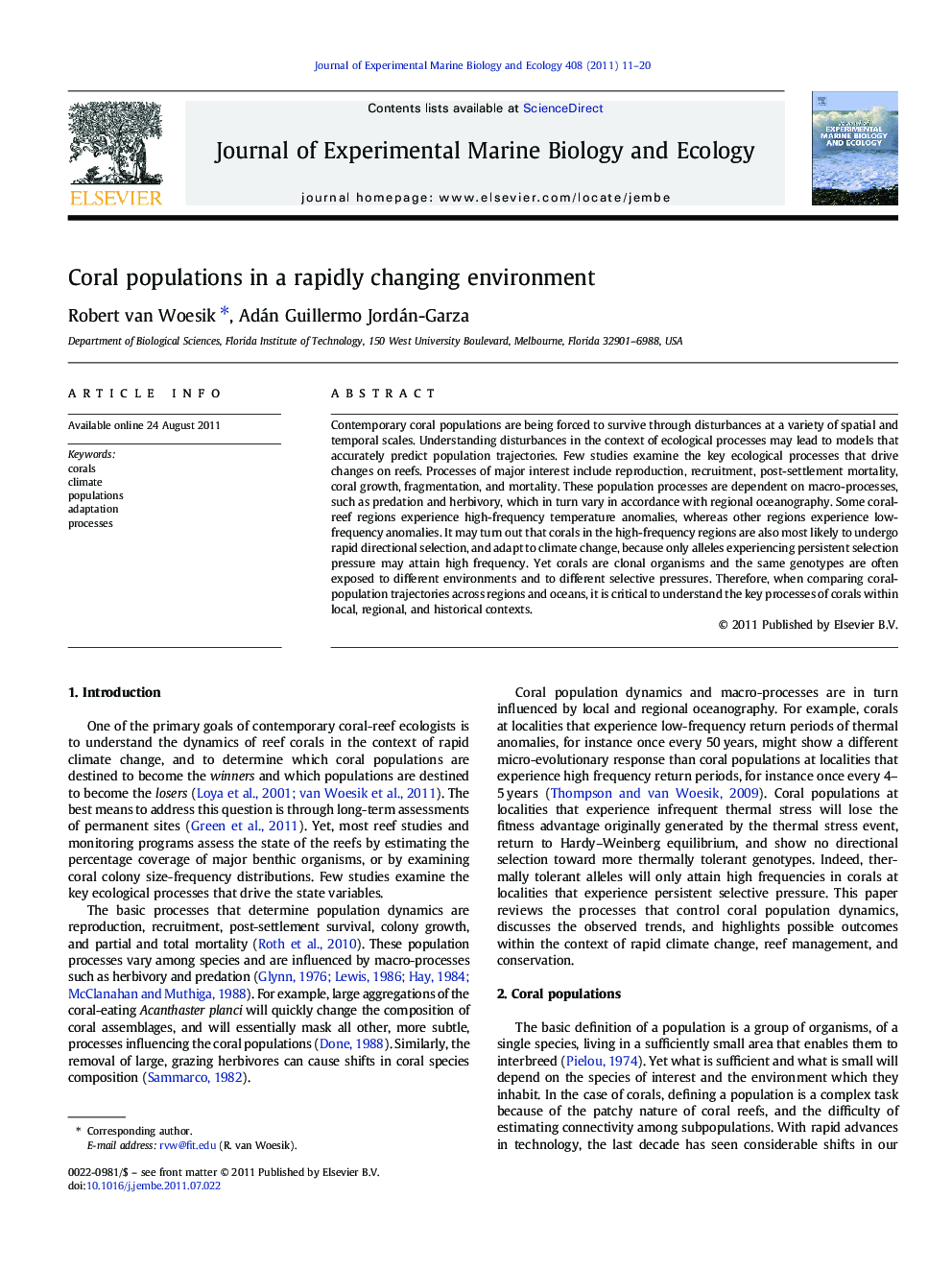| Article ID | Journal | Published Year | Pages | File Type |
|---|---|---|---|---|
| 4396222 | Journal of Experimental Marine Biology and Ecology | 2011 | 10 Pages |
Contemporary coral populations are being forced to survive through disturbances at a variety of spatial and temporal scales. Understanding disturbances in the context of ecological processes may lead to models that accurately predict population trajectories. Few studies examine the key ecological processes that drive changes on reefs. Processes of major interest include reproduction, recruitment, post-settlement mortality, coral growth, fragmentation, and mortality. These population processes are dependent on macro-processes, such as predation and herbivory, which in turn vary in accordance with regional oceanography. Some coral-reef regions experience high-frequency temperature anomalies, whereas other regions experience low-frequency anomalies. It may turn out that corals in the high-frequency regions are also most likely to undergo rapid directional selection, and adapt to climate change, because only alleles experiencing persistent selection pressure may attain high frequency. Yet corals are clonal organisms and the same genotypes are often exposed to different environments and to different selective pressures. Therefore, when comparing coral-population trajectories across regions and oceans, it is critical to understand the key processes of corals within local, regional, and historical contexts.
► Coral population dynamics are process driven. ► The interaction between coral reproduction, recruitment, post-settlement mortality, growth, partial mortality, fragmentation, and mortality determines population trajectories. ► Adaptation is most likely in localities that experience persistent selective pressure. ► Persistent selective pressure is most likely in localities with high thermal-stress return frequencies. ► Local management of coral reefs will help buffer against climate-change disturbances.
